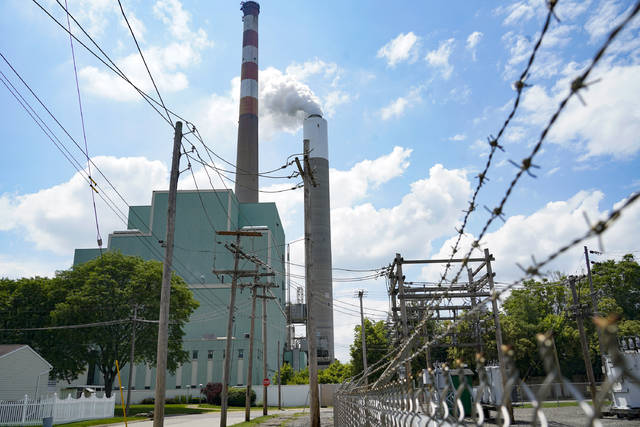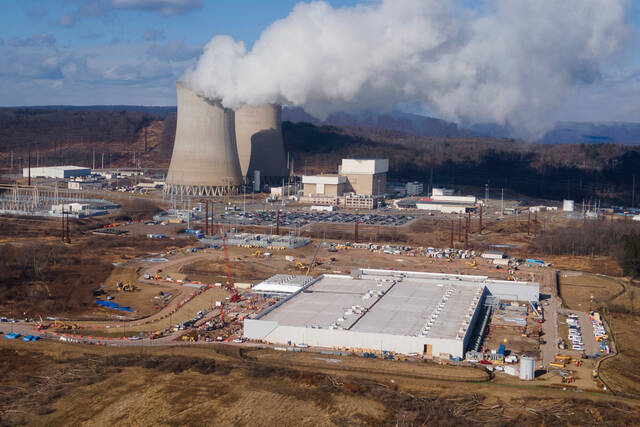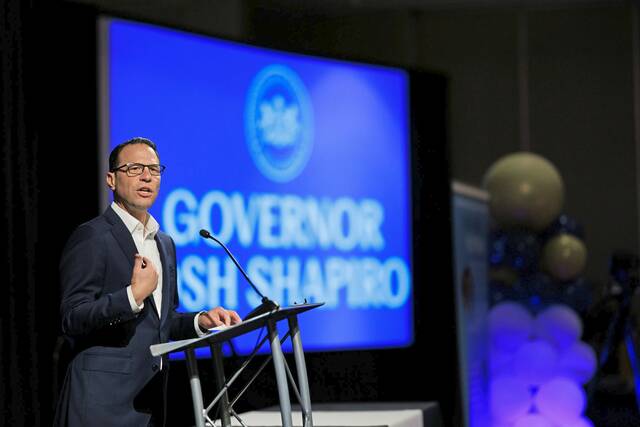The centerpiece of Gov. Tom Wolf’s plan to fight climate change was confronting its last regulatory hurdle Wednesday, in a bid to make Pennsylvania the first major fossil fuel state to adopt a carbon pricing policy.
The plan to impose a price on carbon dioxide emissions from fossil fuel-fired power plants in Pennsylvania is going before the Independent Regulatory Review Commission, a five-member panel made up of three Democratic appointees and two Republican appointees.
The vote is on whether to allow Pennsylvania to impose carbon-pricing as part of a multistate consortium, the Regional Greenhouse Gas Initiative, which sets a price and declining limits on carbon dioxide emissions from power plants.
A chief argument against Wolf’s plan is that making fossil fuels more expensive would send power generation to neighboring states with no emissions caps and devastate local economies. Others question the need to do it if Pennsylvania won’t directly see more moderate temperatures or weather events.
“We realize Pennsylvania cannot combat climate change on its own, but we also must recognize that the rest of the world cannot combat climate change without us,” Wolf’s environmental protection secretary, Patrick McDonnell, told the panel in his opening remarks.
The heavily populated and fossil fuel-rich Pennsylvania has long been one of the nation’s biggest polluters and power producers and the jury is out on whether a carbon-pricing program would significantly reduce greenhouse gas emissions.
Its effectiveness could depend on where emissions caps are set and whether hundreds of millions of dollars paid by owners of coal- and natural gas-fueled power plants are wisely spent on clean energy and energy efficiency programs.
If Wolf is successful, Pennsylvania would join California, Washington and the 11 states already in the greenhouse gas consortium to adopt a carbon pricing policy, according to the Center for Climate and Energy Solutions.
Wolf wants it to take effect next year, although a legal challenge is expected before that. The Republican-controlled Legislature also may try to muster veto-proof majorities to block it.
The plan has staunch opposition from Republican lawmakers, coal- and natural gas-related interests who would pay more to operate, business groups that fear higher electricity bills and labor unions whose workers maintain power plants, build gas pipelines and mine coal, fearing a loss of jobs.
It is backed by Democrats, nuclear power plant owners, the renewable energy sector and environmental advocacy groups, while the Wolf administration projects reductions in air pollution and electricity bills, improvements in public health and a stronger economy.
In theory, electricity from solar, wind and nuclear power generators would become more cost competitive in electricity markets.
In some cases, Wolf’s plan has received support from backers of higher-efficiency natural gas plants and labor unions involved in work on renewable energy projects. It also motivated the Ohio-based owner of nuclear-powered Beaver Valley Power Station to put off plans to close the plant.
Strong opposition has emerged from coal communities, with coal advocates saying the plan would prematurely shut down coal mines and coal-fired power plants in Pennsylvania.
Rep. James Struzzi, R-Indiana, whose district is home to two coal-fired plants, told the panel that people are “terrified” of what carbon-pricing will do their community.
“It’s an assault on a particular industry to benefit other industries, and that is simply not acceptable,” Struzzi said.








